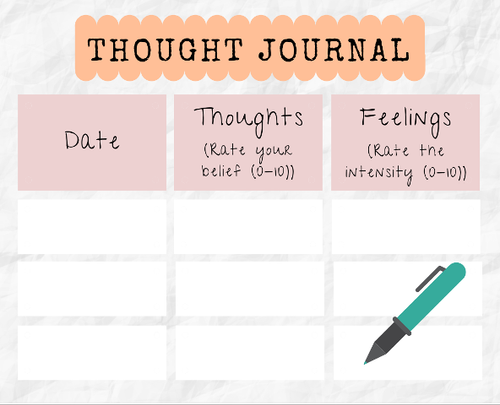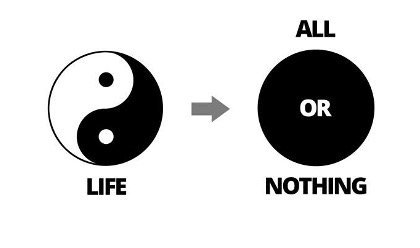There never seems to be a way out that you can find without slamming face first into your own reflection. Some mirrors even make you appear distorted, and you begin to questions which parts of this experience are real. To victims of gaslighting, this is an analogy of what it might feel like to be gaslighted.
What is Gaslighting?
(clue: it is not lighting a fire using gas)
Gaslighting is an insidious form of psychological manipulation that can have a profound effect on the individuals affected by it.
Gaslighting is a term used to describe when someone intentionally, and often successfully, manipulates another person into questioning their own memory, judgement, or reality. It is a form of psychological manipulation that occurs over a gradual period where the perpetrator takes advantage of a target by sowing seeds of doubt within them.
So how does gaslighting look like?
A gaslighter (aka the abuser) may use tactics such as making false statements (which they will strenuously deny if challenged), disagreement with factual information and downplaying emotions, all in an effort to make the victim doubt their own perceptions.
Over time, victims are not only unsure about their perceptions of reality and even their own thoughts, but come to rely on the abuser to tell them the “truth” about.
The ultimate goal of gaslighting is to de-legitimise a victim’s thoughts and to cause them to question themselves. This can occur via a variety of techniques and behaviours that the gaslighter employs, which may look like:
Lying – “That’s not what I said, I said this…”
Discrediting – Telling people around you that they are concerned about your recent behaviour and that you might be “crazy”.
Distracting/Deflecting – “Why did you bring this up? What about the time you….”
Minimizing thoughts and feelings – “Why are you so sensitive?”
Shifting blame – “I only behave this way because you did so first. I wouldn’t do it if it weren’t for you.”
Denying wrongdoing – “I didn’t do anything wrong”
Changing the storyline – Retelling stories by changing it so that the storyline is in their favour.
While gaslighting often occurs in romantic or familial relationships, it can sometimes occur in the workplace, with friends, or in schools. Several teachers in Singapore even complained about being “gaslighted” by an AI Chatbot designed to provide “AI therapy”!
Why do people gaslight?
Gaslighting is often employed by narcissistic individuals looking to evade accountability.
By redirecting attention onto the supposed flaws or shortcomings of others, it reduces the likelihood of their own flaws being discovered. They might also believe that they are never at fault, naturally it would be easier to put the blame on others when things don’t go their way. As long as the victim believes they are flawed and need help, the gaslighter would never have to take responsibility for their actions and can continue behaving in the way they do.
What are the effects of gaslighting
Ψ Isolation
Being gaslighted can make you feel extremely alone and dependent on the abuser. It may feel as if everyone around you thinks you have issues or even to the extent of feeling crazy, just as the abuser would describe. As you begin feeling more isolated, the behaviour of the abuser becomes more normal since there is nothing else to compare it to.
Ψ Emotional Trauma
Gaslighting has significant negative effects and can cause emotional trauma to the victim. Children exposed to traumatic events and abuse in childhood can become hypersensitive to such threats, and reduce their resistance to stressful events in future. Trauma can also lead to difficulties in emotional regulation in adulthood, alongside other physical issues such as somatic symptoms or heart disease.
Ψ Reduced self-esteem
Prolonged emotional abuse can also lead to a loss in self-esteem, as you constantly feel that you’re never enough. You might begin wondering if you can believe in yourself to do anything correctly, or if you’re to blame for everything that has gone wrong. You might feel incapable of judging the situation realistically, and if you can accurately remember the details of situations. You might feel obliged to continue to stay in the abusive situation because it might feel like no one would believe you or want you anyway.
Ψ Psychological issues
You might even feel nervous or afraid to say things, lest the abuser retaliates or no one believes you. Gaslighting can lead to psychological disorders such as anxiety, depression or even psychosis.
Signs that you are being gaslighted
Unfortunately, gaslighting can be incredibly hard to detect without an outside perspective which could make it incredibly difficult for victims to identify what’s happening and take action before it’s too late. On the surface, what might seem as an innocuous quarrel between a couple or might in reality be more complex than a mere argument between two individuals.
It can be difficult to spot gaslighting within a relationship as the signs can appear “normalised” to you after some time. Recurring manipulation and abuse, coupled with the feelings of isolation and reduced self-esteem, causes the individual to constantly doubt themselves and the reality that surrounds them.
If you identify with some of these emotions and suspect that you are being gaslighted, the following are several signs that can indicate gaslighting behaviour.
Ψ Repeated patterns of manipulation
“Nope, that didn’t happen”
“Your memory is getting so bad!”
“You’re being so sensitive”
These statements are often used by gaslighters to manipulate you.
While they might be common statements used in many arguments, it is important to note that these statements are often used throughout by the gaslighter in the relationship. This happens often enough such that it forms a consistent pattern in a relationship.
Ψ Being invalidated constantly
When expressing your needs or concerns, the gaslighter often invalidates you by calling you oversensitive, convincing you that you’re unstable, and how everyone around you thinks you’re crazy.
Ψ Deflection
When it comes to finger pointing, no one can beat a gaslighter. As soon as you bring up a topic that is concerning to you, they either change the topic or manage to turn it around to pin the blame on you for something completely irrelevant.
Ψ Losing a sense of self
When you begin second guessing your own judgment and perceptions of events that happened, it almost feels as if you lost your identity and status as an individual. Perhaps you begin wondering if everything the gaslighter is saying is true, that you’re weak and not enough, that you’re too sensitive, and you cannot stand up for yourself. You start to wonder if you’ve been like this all this while. Perhaps it’s true and you begin to accept it.
Ψ Walking on eggshells
What happens when you start convincing yourself that it is not as bad as it seems? You just have to be careful every time you interact with them and ensure not to say the wrong thing, right? You become afraid to voice your opinions for fear of getting shot down or because you’ve learnt that your opinions don’t matter anymore. You live as though you’re always on the edge of your seat and get spooked by every little thing.
What can you do if you are being gaslighted?
Here are a few steps you can take to protect yourself from being gaslighted.
Ψ End the conversation
When you find yourself being gaslighted, understand that the abuser might be overwhelmed and unable to control the words that they use. That does not mean that it is okay, hence you should try to end the conversation as soon as possible. Set appropriate boundaries and let them know that you do not wish to continue the conversation if they are only going to continue to berate you.
Ψ Save evidence for yourself
Recording conversations and saving receipts of text messages can help you remember that your reality is not based off of what one person says. It helps you recall that you’re not the one that remembered things wrongly or did something that you didn’t. Do be careful when confronting an abuser with evidence, for it might result in an even more explosive outburst.
Ψ Getting an outsider’s perspective
When you’ve lived in the world of the abuser for too long, it can be difficult to identify what’s real and what’s not. A trusted individual outside of the relationship (perhaps an old friend of yours) can help to give a different perspective from yours, helping you untangle the web of distortion.
Being a victim of gaslighting can feel invalidating, dismissive, and most of all, lonely. Keep in mind the abuser wants to make you forget about who you once were, before the relationship. This process can be gruelling especially if you’ve been a victim for a long time. Do not hesitate to reach out to us for help!
















